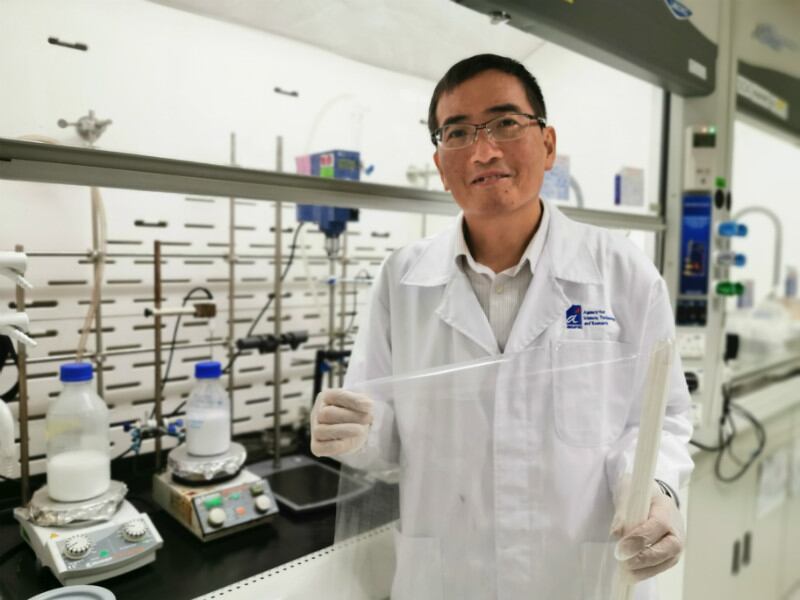The institute, dubbed the Singapore Institute of Food and Biotechnology Innovation (SIFBI) is fronted by the Agency for Science, Technology and Research (A*STAR), but major participating organisations include food science and technology programmes from the National University of Singapore (NUS), Nanyang Technological University (NTU), various labs, polytechnics and industry bodies in the country, as well as newly-established regulatory body Singapore Food Agency (SFA).
The institute’s overarching goals include addressing local food security and food waste issues, but working with F&B companies will also be a major area of focus, and both smaller companies as well as MNCs in the F&B industry will benefit from this, according to A*STAR Biomedical Research Council Senior Director Dr Ralph Graichen.
“As much time and attention will be spent with start-ups as with MNCs [in looking at product development and innovation] with SIFBI,” he said during a media briefing, in response to queries from FoodNavigator-Asia.
“The focus is on the Asian consumer – Asia is an important area where companies still see growth in the food industry, and they cannot just bring products over directly from Europe and sell them here.
“Consumers are very emotional to food, so even with innovation and change, it is necessary to communicate with them. [SIFBI] has been established as a collaboration of our expertise internally, so now it’s all under one umbrella, and there will be just one interface point for the F&B industry and public partners to connect with.”
Beyond product innovation, helping firms with product market entry and ensuring regulatory compliance will also be a key area of focus.
“One of the key benefits of the establishment of this institute for F&B firms is that they can now go to a ‘one-stop shop’ to have discussions around their products, to see how to develop these safely and nutritiously, and how to go to market in Singapore,” said A*STAR Innovations in Food and Chemical Safety Programme Director Associate Professor Benjamin Smith.
“This is even more so for start-ups which might not normally be exposed to certain operational or regulatory requirements, but now will have better access to these.”
Adding value to F&B products
According to A*STAR Biomedical Research Council Executive Director Dr Benjamin Seet, the current food manufacturing landscape in Singapore is such that over 85% of the almost 50,000 employees in the industry are hired by SMEs, but the overall value added to the country’s GDP stands at just S$4bn (US$2.94bn), or around 1%.
“The challenge here is that it is very manpower intensive, but low value-intensive,” said Dr Seet.
“There is a need for these companies to adopt more technology, [and] industry transformation is needed to [create] products, services, and processes to support Singapore’s future food industry.”
Three key foci he highlighted were that of investment, growing the Singapore brand for high quality and safe food products, as well as creating a ‘sticky ecosystem’ to anchor leading food and consumer companies in the country.
“We want to bring in food MNCs and SMEs into one ecosystem so as to support one another all along the process from product to consumer,” he said.
Addressing food regulations
The SIFBI will also be looking to address the sticky issue of food regulatory science.
“[Focusing on this will] enhance Singapore’s regulatory readiness to new food and consumer product innovation, and we will look at partnering with local and international authorities to improve inter-agency coordination,” said Dr Graichen.
Another major area within this will be education for the industry to enhance understanding and implementation knowledge.
“This will be rolled out first as education courses for different levels, so we will provide different levels of training such as safety assessments and specific courses for food science students at university level, those within the industry, and also at regional level where these could be extended to other countries in the region,” said Prof Smith.
NTU Food Science Technology Director Professor William Chen added that some of these would also be applicable to the public via courses on Singapore’s talent- and potential-development platform SkillsFuture.




